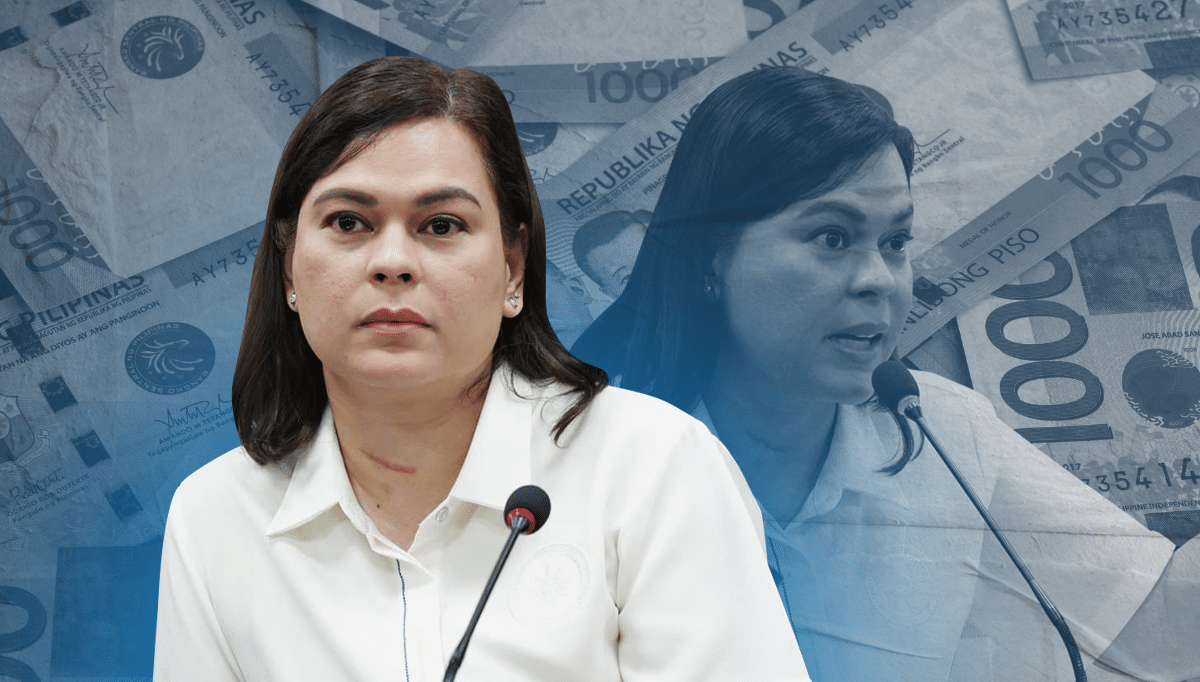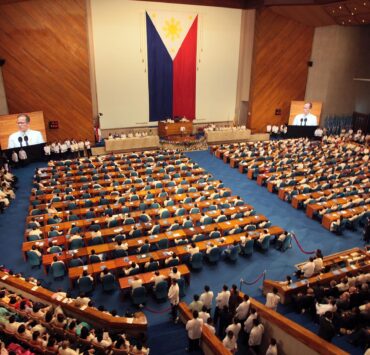House to ask SC to reconsider ruling on VP impeachment

The House of Representatives will ask the Supreme Court to reconsider its junking of the articles of impeachment against Vice President Sara Duterte that it said relied more on a news story than the chamber’s journal.
The House will file the motion for reconsideration because the high court’s decision “is anchored on factual premises or findings that are erroneous and contrary to the official record” of the chamber, its spokesperson Princess Abante said on Sunday.
Until the high court ruled last Friday that the complaint was barred by the one-year rule on the multiple filing of complaints, the House team of prosecutors had been preparing for the start of the impeachment trial in August.
The Senate, acting as the impeachment court, had yet to decide whether to proceed with the trial following the court’s declaration that the body has no jurisdiction over the impeachment proceedings.
‘Categorically false’
Abante clarified a number of inaccurate findings by the high court, including the claim that the House transmitted the fourth complaint to the Senate on Feb. 5 this year without a plenary vote.
“This is categorically false. This is not correct,” she said in a statement.
On that day, Majority Leader Mannix Dalipe moved to transmit the complaint to the Senate after it was verified and signed by one-third of the members, according to Abante.
She said this motion was approved in plenary, and the House immediately formed a panel of public prosecutors. All these were recorded in House Journal No. 36 and in the official record of the chamber.
“Its transmittal to the Senate was not unilateral or ministerial—it was a clear result of plenary action,” she added.
‘Procedural inversion’
And contrary to the high court’s claim that the House failed to act on the first three impeachment complaints filed in December 2024, the chamber voted to archive these complaints hours before Congress adjourned on Feb. 5.
The conclusion drawn by the high tribunal that the fourth complaint violated the one-year bar “is therefore grounded on a factual and procedural inversion,” said the House spokesperson.
“The basis of the decision on which the court’s legal pronouncements revolve was incorrect. The plenary vote was not included, the reading of the timeline of House’s actions was wrong, and a news article was believed more than the House Journal and the official report submitted to the court,” she added, without giving specifics.
The high court noted that the first three complaints were deemed dismissed when Congress adjourned on Feb. 5. Yet on the same day, the House adopted and transmitted a fourth complaint to the Senate.
It considered the first three complaints as separate from the fourth complaint, and ruled that when the three complaints were dismissed on Feb. 5, no new complaint can be filed until Feb. 6 next year.
The court said that the one-year bar is reckoned “from the time an impeachment complaint is dismissed or no longer viable.”
‘New standards’
Abante also observed that the high court applied new standards of due process to its deliberations on the two petitions seeking to void the articles of impeachment.
“According to the court, even if a complaint already signed and verified by one-third of the members must still be read by each signatory and then referred again to the plenary for voting. They also said the respondent must have been given a copy and the opportunity to respond to the complaint before it is submitted to the Senate. But there is no such requirement in our Constitution or in the rules of the House,” she said.
“In other words, the court issued a new guideline that is not found in existing law. They invalidated the articles of impeachment based on new standards of due process for the respondent,” she added.
Abante said the House has also reviewed the now “very stringent requirements” spelled out by the high court before an impeachment complaint can move forward.
“These are requirements that essentially amend the Constitution and represent an unacceptable intrusion into the exclusive powers of the House of Representatives. It is for these reasons that the House will be filing a motion for reconsideration,” she said.
“We remain hopeful that once the facts are corrected, the court will arrive at a different and more just conclusion,” she added.
‘Not fair’
Abante also pointed out that Duterte had been repeatedly invited to House hearings on the alleged misuse of funds in the Office of the Vice President, and Department of Education, but she chose to skip these.
Meanwhile, Sen. Panfilo Lacson agreed that the Senate should decide at the soonest possible time whether to pursue the trial. He urged his colleagues to consult legal experts on the next course of action.
“I suggest let’s not wait for the motion for reconsideration (to be filed by the House). We need to decide whether to continue the trial or not. If the trial continues, the question would be what is the jurisdiction of the Senate? Because the SC said it seems like the Senate effectively has no jurisdiction because it’s as if the articles of impeachment is invalid,” Lacson said.
“If we continue the trial, we will have to contend that it (Senate) has jurisdiction because it has already begun,” he added.
Undersecretary Claire Castro, Malacañang press officer, agreed that the SC decision did not absolve the Vice President of the charges she was being accused of. “The SC decision favored her by mere technicality,” she said over dzMM.
Castro echoed retired SC Associate Justice Adolfo Azcuna, who called the decision “legally correct,” but “rather unfair.”
Azcuna pointed out that the high court introduced a new definition of what it means to initiate an impeachment complaint, doing away with its 2003 Francisco v. House of Representatives ruling (G.R. No. 160261).
Castro described this as “punishing someone by forcing them to accept something new, when what they previously accepted was based on the prevailing jurisprudence at that time.”
“Then suddenly, you’re going to impose your newly created rule on them—something that didn’t even exist back then,” she said. “That’s unfair.”
The House and Senate should just do what they are supposed to do, according to the Malacañang official. “If someone should be held accountable [through impeachment], then they should be held accountable,” she said. —WITH A REPORT FROM DEXTER CABALZA

















